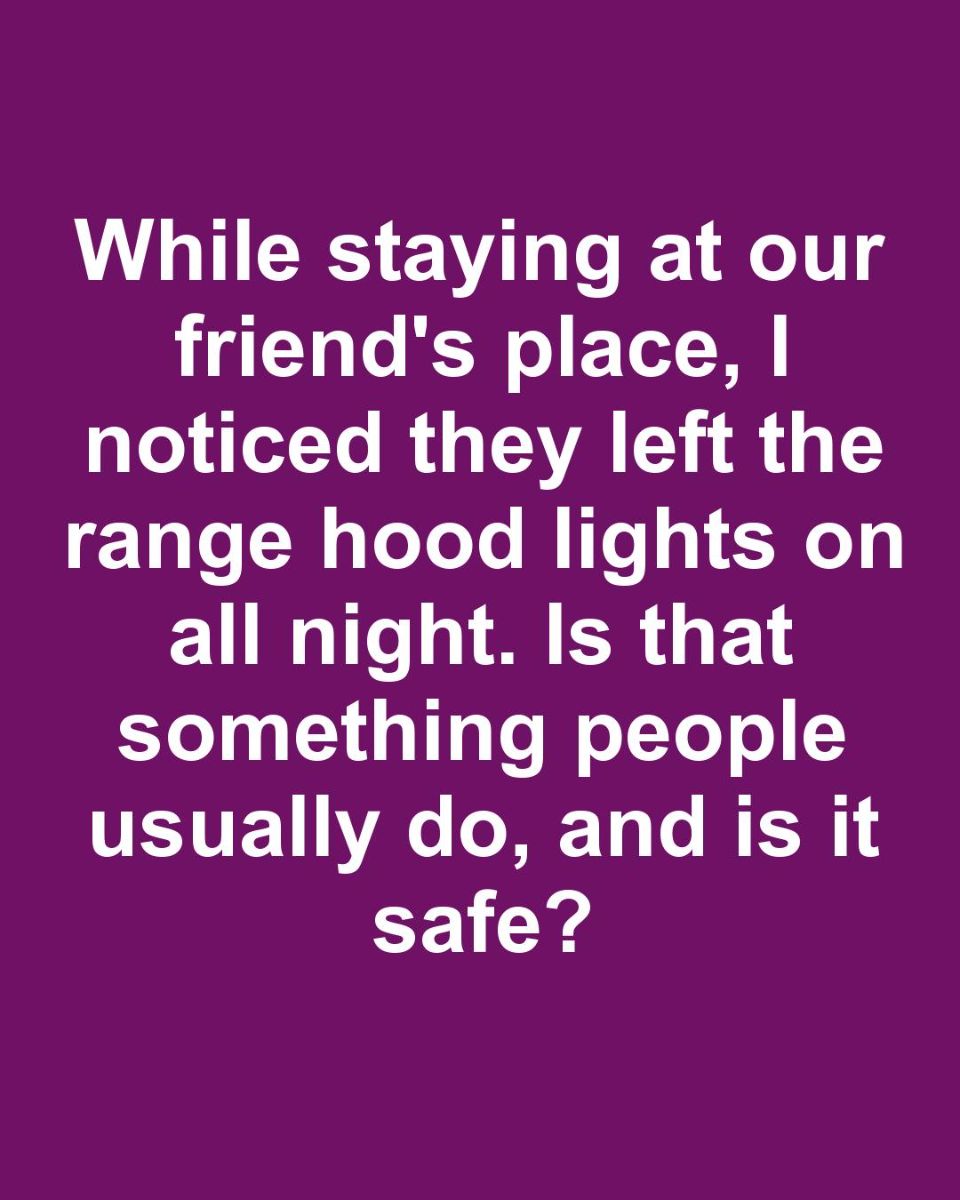Understanding the Function of Range Hood Lights

Sounded so weird at first
Range hood lights are designed to provide focused illumination over the stovetop. This can aid in cooking, ensuring food is cooked properly and safely by enhancing visibility. Typically, these lights are used intermittently, switched on during cooking or when extra light is needed in the kitchen.
Common Practices in Using Range Hood Lights
Some common practices include turning on the range hood lights while cooking or cleaning and turning them off thereafter. However, usage differs based on personal preferences, lifestyle habits, and the specific design or location of the kitchen. For some, leaving them on might serve as a helpful nightlight or security feature.
Reasons for Leaving Range Hood Lights On at Night
People might leave range hood lights on overnight for various reasons—convenience, out of habit, or to act as a nightlight in the kitchen, providing subtle illumination for late-night trips to the fridge or enhancing security by illuminating a dark area. Additionally, the faint glow can be comforting for some.
Potential Safety Concerns of Overnight Use
Regarding safety, modern range hood lights are generally low-risk appliances. However, like any electrical device, prolonged use may lead to increased wear or potential hazards if the equipment is faulty. Ensuring that the range hood is well-maintained can mitigate these risks.
Energy Consumption and Cost Implications
Leaving the lights on overnight does add to electricity usage, albeit minimally in most cases. However, the cost can accumulate over time, especially with less energy-efficient bulbs. Consumers conscious of their energy footprint might consider this when deciding whether to leave the lights on.
Alternative Solutions and Best Practices
For those who want a lit kitchen at night but prefer not to leave range hood lights on, alternatives include using energy-efficient LED nightlights or motion-sensor lights. These can provide sufficient illumination with lower energy consumption. Best practices suggest turning off lights when not in use to conserve energy and extend the lifespan of the bulbs.
Expert Opinions on Range Hood Light Usage
Experts typically recommend using range hood lights only when necessary, emphasizing energy efficiency and regular maintenance of the equipment to ensure safety and longevity. They suggest that while leaving them on occasionally is not inherently dangerous, it should be balanced with energy conservation efforts.
Conclusion
Whether or not leaving range hood lights on overnight is common practice largely depends on individual habits and needs. While generally safe, doing so does involve minimal energy consumption and potential wear on the lights. Considering alternative solutions and adhering to energy-efficient practices could provide similar benefits without unnecessary costs.
